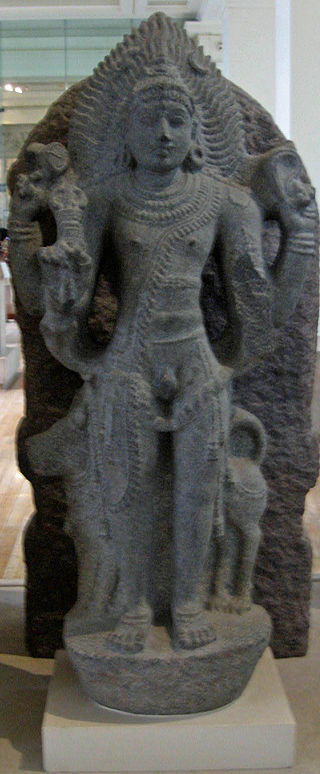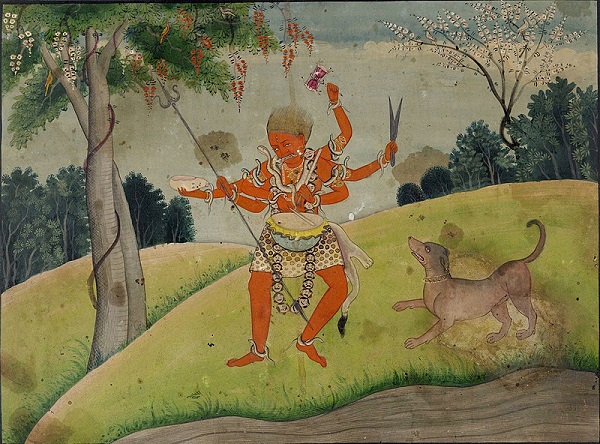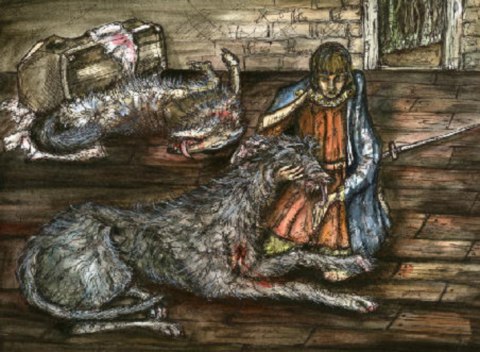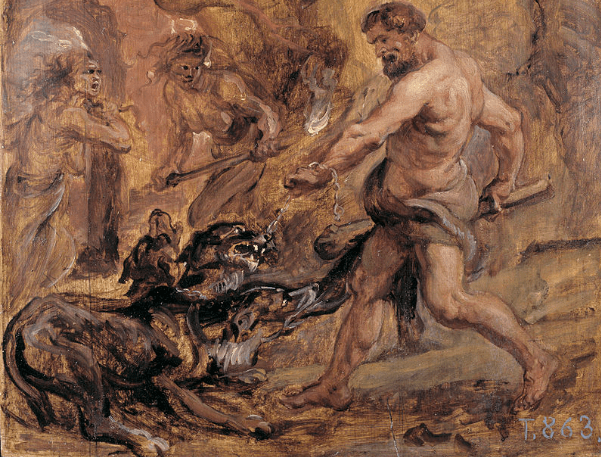Animals occupy a special place in Hindu culture. From the Vedas, we understand that the gods, human beings, and animals have a relationship, and they are interdependent.
Hindu Puranas, folk tales, and legends vividly mention that when Brahma created animals, he signified their importance to humans. He hid a secret in each of them. The story says that Lord Shiva imparted a specific form of yogic awareness to every animal.
Hinduism regards all souls to be equal. Hence, animals are not inferior to anyone. So, in Hinduism, many animals are worshipped for their divine qualities and are treated with respect.
Are Dogs Also Considered Sacred?
Like many other animals in the Hindu culture, dogs are worshipped by Hindus for their loyalty and vigilant nature in different parts of India and Nepal. Though they do not belong to the same status as cows, snakes, horses, or elephants, dogs have played a significant role in Hindu mythology for centuries.
They are considered one of the most loyal and faithful animals to mankind. Hence, their presence is believed to bring good fortune and prosperity to the households they belong to.
Dogs are believed to be sacred animals guarding the door of heaven and hell. The dogs represent our past life and attractions when we would get reincarnated. It is said that Gods sometimes appear before humans in the form of dogs.
Dogs have been friendly to humans for ages. With our ancestors, dogs ventured out to hunt and protect cattle.
When wild animals attacked, the dogs stood with humans to protect them. This loyalty makes them the symbol of faithfulness. Thus, it is no wonder such faithful relationships between dogs and humans are depicted in early stories. It is depicted in the sky through the star constellations, where Orion, the hunter, is seen with his dog Canis.
For human beings, death is a mystery. So, they associated their faithful companion dog with death. It is said that a dog becomes a companion in the greatest unknown adventure of human life, which is death. They even guard our souls in the ultimate journey.
Importance of dogs in Hindu mythology

In Hinduism, dogs are revered as an embodiment of Lord Bhairava, a fierce form of Lord Shiva. The importance of dogs in Hindu mythology can be traced back to ancient texts, such as the Vedas and the Puranas. In these texts, dogs are often portrayed as the “guardians of the gates of heaven” and believed to have the power to ward off evil spirits and protect the home and family from harm. They are seen as a symbol of loyalty and devotion, and stories about their bravery and unwavering loyalty are common in Hindu mythology.
Another important mythological figure associated with dogs in Hinduism is “Lord Bhairava.” According to Hindu mythology, Lord Bhairava is a fierce and terrifying form of Lord Shiva, and he is often depicted with a dog by his side.
The dog is seen as a symbol of Lord Bhairava’s loyalty and his ability to protect his devotees from harm. In some versions of the story, it is believed that Lord Bhairava himself created the dog. He created dogs to serve as his companion and protector.
Thus, dogs are worshipped as Bhairava itself. Like Parsis, Hindus also feed dogs with the hope of a peaceful afterlife or some time to remember the dead people.
One of the most well-known stories in Hindu mythology involving dogs is from Mahabharat, the story of the dog at the gates of heaven. According to this legend, a Pandavas named “Yudhisthira” was on their way to heaven. He was accompanied by his faithful dog when Indra, the King of the Gods, stopped him.
Indra told Yudhisthira that dogs were not allowed in heaven and that he would have to leave his beloved pet behind. Yudhisthira refused to abandon his dog and instead chose to remain outside the gates of heaven with his faithful companion. Impressed by Yudhisthira’s loyalty, Lord Indra revealed that the dog was, in fact, a manifestation of the god Dharma and that he had passed his test of devotion.
In addition to their role in mythology, dogs also hold a special place in Hindu culture and society. They are often kept as pets and considered an integral part of the family. In some regions of India, it is customary to feed dogs before eating one’s meal; as a way to show gratitude for their loyalty and protection.
During the festival of Diwali, dogs are also worshipped and honored for their role in protecting homes and families.
Festivals for dogs
The importance of dogs in Hindu mythology has also led to the creation of numerous temples dedicated to them. One such temple is the Kukur Tihar Temple in Nepal. This temple is dedicated to worshipping dogs. During the festival of Kukur Tihar, also known as the Festival of Dogs, dogs are decorated with garlands of flowers and given special treats as a way to honor their loyalty and devotion.
On the day of Diwali, Bhairava is recognized as a dog, and hence the festival is celebrated. Dogs are believed to guard the gates of hell as well. Therefore, this festival is referred to as Naraka Chaturdashi.

Frequently Asked Questions
Q: What is the name of the dog of Lord Bhairava?
A: Shvan is the name of the dog Lord Bhairava.
Q: Dogs in Hindu mythology-What was their importance?
A: The stories and legends surrounding dogs in Hindu mythology are a “testament” to their importance in Indian culture and society. Hence, numerous temples have been dedicated to their worship, thus reflecting the reverence with which they are held.
Q: What is the name of the Hindu god of dogs?
A: Virabhadra, Nirriti, and Rudra are deities associated with canines. Bhairava, an aspect of Lord Shiva, has a dog as its vehicle or “vahana”. Bhairava is considered the creator of dogs. The other Hindu deities that are associated with dogs are Khandoba and Dattatreya.
Q: Which Hindu God rides a dog?
A: Bhairava, a manifestation of Lord Shiva, is known to use a dog as a mount.
Q: Which Veda has the earliest reference to the dog?
A: Rig Veda is supposed to be the first to give prominence to dogs. Hence, the earliest reference can be traced to Rig Veda. Perhaps, Hindu culture is known to be the first culture in the world to have introduced dogs in literature. Both Ramayana and Mahabharata have 2 interesting stories about the faithfulness of dogs.
Conclusion
Dogs have played a significant role in Hindu mythology for centuries. They were revered as a symbol of loyalty, service, devotion, companionship, and protection towards their masters. Hence, their presence is believed to bring good fortune and prosperity to households. Still, now dogs protect us from intruders.
They guard our house and spend so much time with us. They are an integral part of our daily life. They share a special bond with humans. Hence, their reverence is somewhat expansive throughout the Hindu culture. As such, dogs are a crucial part of Hindu culture and mythology, and their importance will likely endure for generations.
 DogExpress
DogExpress



















 in Chandigarh, India.
in Chandigarh, India. 

